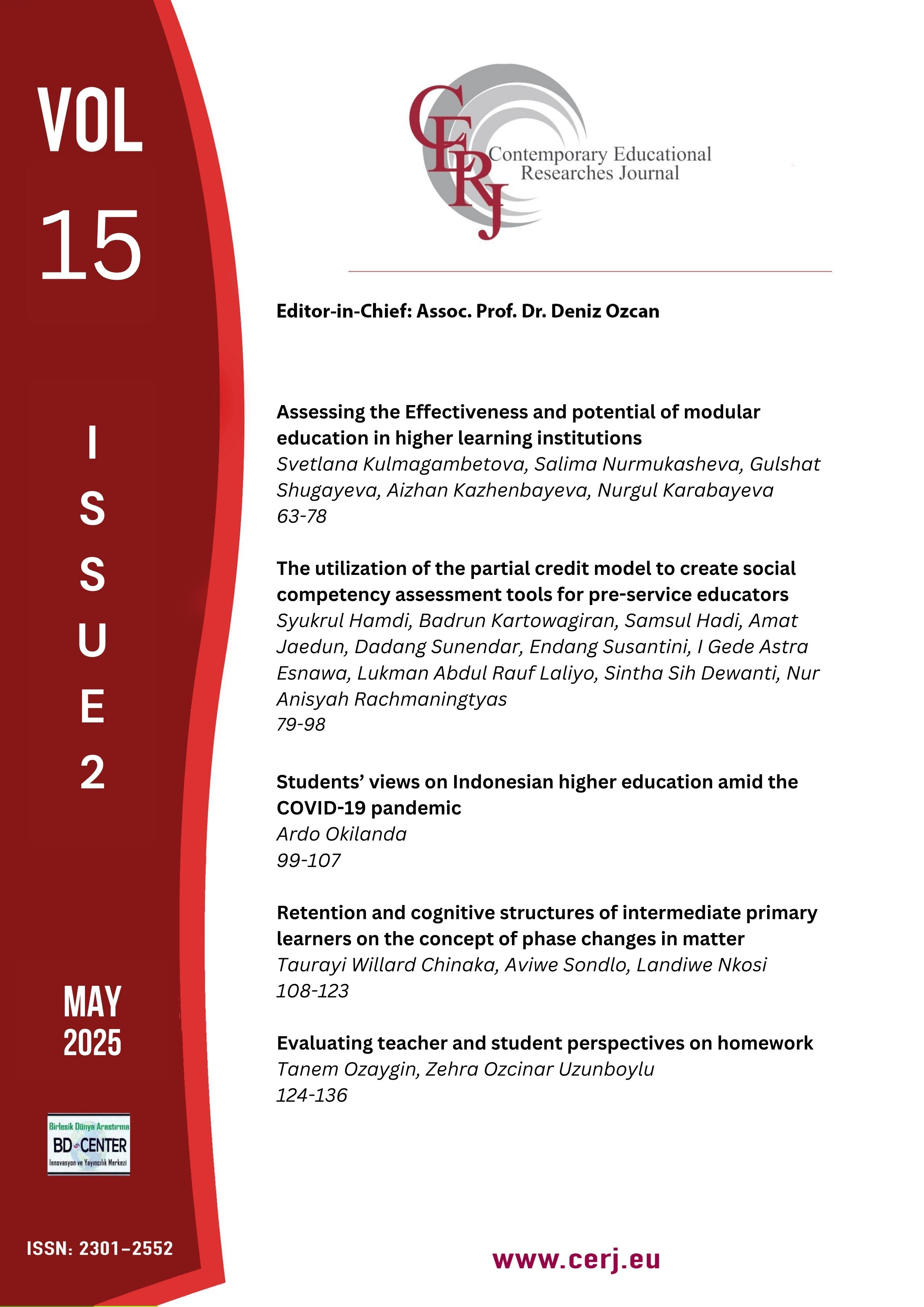The utilization of the partial credit model to create social competency assessment tools for pre-service educators
Main Article Content
Abstract
Social competence encompasses a dynamic interplay of cognitive, emotional, and interpersonal abilities that enable individuals to engage effectively in social interactions. For educators, particularly pre-service teachers, social competence is essential for navigating diverse classroom environments and fostering meaningful relationships. This study aimed to construct, validate, and evaluate the psychometric properties of a social competence scale and to assess the overall tendencies of pre-service teachers in this domain. The scale was developed based on four dimensions: attitudes, communication, adaptation, and professional orientation. Factor analysis confirmed a unidimensional model, indicating a coherent construct underlying the instrument. Item characteristics were examined using the Polytomous Item Response Theory with the Partial Credit Model. The results showed that the scale possessed strong item discrimination and appropriate item difficulty levels, ranging from −1.64 to 0.22. The social competence levels of pre-service teachers ranged from −0.87 to 0.69, suggesting moderate variability in their social adaptability and readiness. These findings support the instrument’s utility for assessing and enhancing social competence in teacher education programs.
Keywords: Item response theory; pre-service teachers; psychometrics; social adaptation; social competence
Downloads
Article Details

This work is licensed under a Creative Commons Attribution-NonCommercial-NoDerivatives 4.0 International License.
Authors who publish with this journal agree to the following terms:
- Authors retain copyright and grant the journal right of first publication with the work simultaneously licensed under a Creative Commons Attribution License that allows others to share the work with an acknowledgement of the work's authorship and initial publication in this journal.
- Authors are able to enter into separate, additional contractual arrangements for the non-exclusive distribution of the journal's published version of the work (e.g., post it to an institutional repository or publish it in a book), with an acknowledgement of its initial publication in this journal.
- Authors are permitted and encouraged to post their work online (e.g., in institutional repositories or on their website) prior to and during the submission process, as it can lead to productive exchanges, as well as earlier and greater citation of published work (See The Effect of Open Access).
